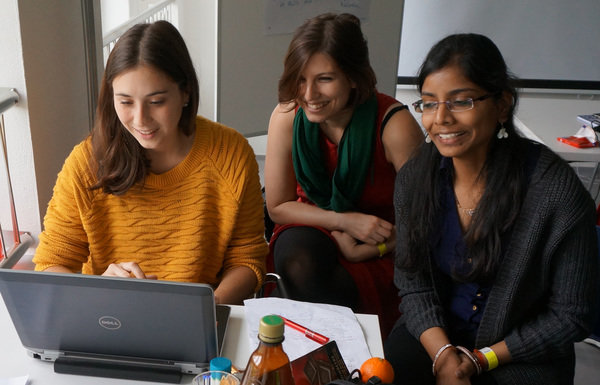
Gender Equality at the Max Planck Society
We want to Raise the Proportion of Female Scientists in Our Ranks on a Sustainable Basis
The road to fairly distributed opportunities between men and women is still a long one – also in science and research. The numbers prove this: the higher the career level, the lower the ratio of women. This applies to the Max Planck Society as well as for the entire German scientific system. The 'leaky pipeline' phenomenon becomes relevant especially after the post-doc phase. The Max Planck Society, along with the institutes, would like to combat this trend.
Voluntary Commitment
We want to increase the proportion of female scientists in our ranks on a sustainable basis. We have therefore defined a voluntary commitment for the third time in succession: Posts becoming vacant are filled with a view to internally defined quotas. The two previous voluntary commitments gave us a boost in tackling the subject of equal opportunities, and they showed that it works. We were able to double the proportion of female scientists on the two top management levels. If you want to recruit from a sufficiently large pool of top researchers on a managerial level over the long term, you must pay particular attention to promoting talented female researchers on the career levels below.
The Max Planck Society Offers:
- Childcare places in collaboration with day nurseries; contract with family service companies to arrange for care (including care of the elderly); financial subsidies for childcare during conferences; parent-child-offices
- Family allowances for scholarship holders
- Participation in further education seminars from the central range of events
- Dual Career Service: help with and support for dual science career couples for appointments to positions on Directors' Boards
- Opportunities for part-time work and teleworking
- Central Equal Opportunities Officer and local Equal Opportunities Officers at the Institutes
- Guide to constructive interaction between male and female scientists
- Participation of Max Planck Institutes in Girls´ Day, holiday programmes for girls, labs for school-children, experiments for pre-school children
Especially for Female Scientists
- Pool of managerial posts in the central programme for Research Groups
- W3 programme for supporting outstanding female scientists in managerial positions
- Minerva-FemmeNet: a mentoring network primarily for female doctoral students but also for female undergraduates, postdocs and habilitation candidates
- Elisabeth-Schiemann-Kolleg: a network for female scientists after their postdoc phase, embedded in the Chemistry, Physics & Technology Section
- Option to extend fixed-term employment contracts in the event of female scientists becoming pregnant and giving birth
- Career advancement: the MPG offers selected female scientists (postdocs) the opportunity to participate in the seminar programme "Sign up! Career Building"
- Christiane Nüsslein-Volhard Foundation: supports talented, young female doctoral students from the field of natural sciences and medicine who have children
- The MPG uses AcademiaNet: The database maintains portraits of excellent female scientists in all technical disciplines, thereby raising women’s visibility. It can be used by research institutions and governing bodies, journalists and conference organizers and for creating networks between women.
- The Minerva Fast Track pilot project by the Chemistry, Physics & Technology Section gives outstanding female scientists the chance to plan their careers for the long term after completing their doctorates. Following directly on the dissertation or after the first postdoc position, funding is provided for a maximum of three years with the objective that the scientist will then apply for an Open-Topic Max Planck Research Group.
- We are partners of the "National Pact for Women in STEM Professions" launched by the German Federal Government in association with political circles, business, science and the media.